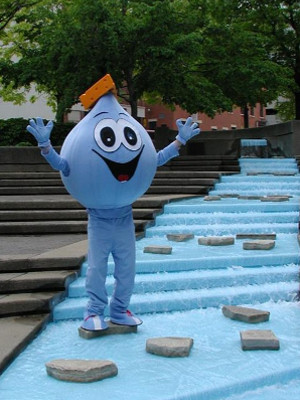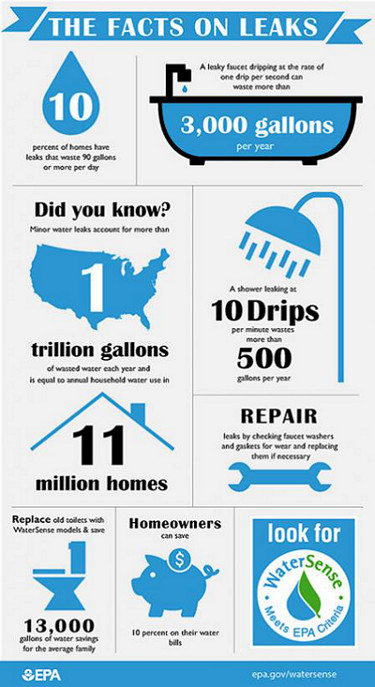Water conservation and efficiency
Wisconsin has abundant water resources that are the foundation for safe drinking water, recreational opportunities and economic activity. We can maintain these uses through water conservation and efficiency practices. Wisconsin statutes and NR 852, Wis. Adm. Code require the DNR to implement a statewide water conservation and efficiency program. The department's program requirements are outlined in this Water Conservation and Efficiency Factsheet [PDF].
Statewide goals and objectives
The DNR, along with the Public Service Commission and Department of Safety and Professional Services, developed water conservation and water use efficiency Wisconsin Water Conservation Goals and Objectives [PDF]. In 2011, the goals and objectives were updated to include the following mission:
"Sustainably manage the quantity and quality of water in the state to ensure that water is available to be used to protect and improve our health, economy and environment now and in the future."
Water conservation tips for homeowners
Here are some easy tips to conserve water, especially during times of drought, to ensure that water supplies remain adequate for drinking, public health, food production and other critical uses.
Indoor water conservation tips
Indoor water conservation tips
- Check for leaky faucets, toilets and showerheads.
- Invest in energy- and water-efficient appliances and toilets.
- Avoid unnecessary toilet flushing.
- Showers are more efficient than baths. Turn on the water only to get wet and lathered, and then again to rinse off.
- Turn off the water while brushing your teeth, washing your face or shaving.
- Fill up a watering can while waiting for the water to get hot, and then reuse that water for your plants.
- Clean your veggies in a pan filled with water and then reuse that water for plants.
- Scrape plates instead of rinsing them before putting them in the dishwasher.
- Compost food waste instead of using the garbage disposal.
- Avoid using running water to thaw meat or other frozen food, instead defrost food overnight in the refrigerator or use the defrost setting on your microwave.
- Find other ways to reuse water.
Outdoor water conservation tips
Outdoor water conservation tips
- Learn about and observe local ordinances regarding lawn watering or conservation measures, especially during drought conditions.
- Instead of turf grass, plant native and/or drought resistant perennials, grasses or groundcovers. Consider reducing lawn areas that aren’t often used.
- Install fountains and ponds in your yard only if they recirculate water.
- Use rainbarrels.
- When using sprinklers, aim for the vegetation and not the pavement.
- Water in the early morning hours or later in the evening for better efficiency.
- Raise lawn mower blade to its highest level. A higher cut encourages grass roots to grow deeper and holds more soil moisture.
- Don’t over-fertilize your lawn.
- Choose a water-efficient irrigation system, such as drip irrigation.
- Use leaf or bark mulch around plants to retain moisture.
- If you have a pool, consider using a water-saving pool filter.
- Cover pools and hot tubs to reduce water evaporation.
- Use a commercial car wash that recycles water.
- In extreme drought, allow lawns to die in favor of preserving trees and large shrubs.
Irrigation efficiency
Irrigation efficiency
Many farmers use groundwater or surface water to irrigate crops or water livestock. To conserve water, here are some tips for irrigators:
- Check your well pump and irrigation systems for leaks and repair any leaks in a timely manner.
- Conduct regular water use audits to check your irrigation system’s application efficiency.
- Track rainfall, irrigation and soil moisture to determine appropriate times and quantity of irrigation needed.
- Install soil moisture probes to deliver accurate volumes for your plants’ needs.
- Where appropriate, implement residue management and conservation tillage to enhance the soil’s ability to retain moisture.
View UW-Division of Extension's webpage for more agricultural irrigation tips.
Videos
Videos
Check out these videos for tips to stop drips.


